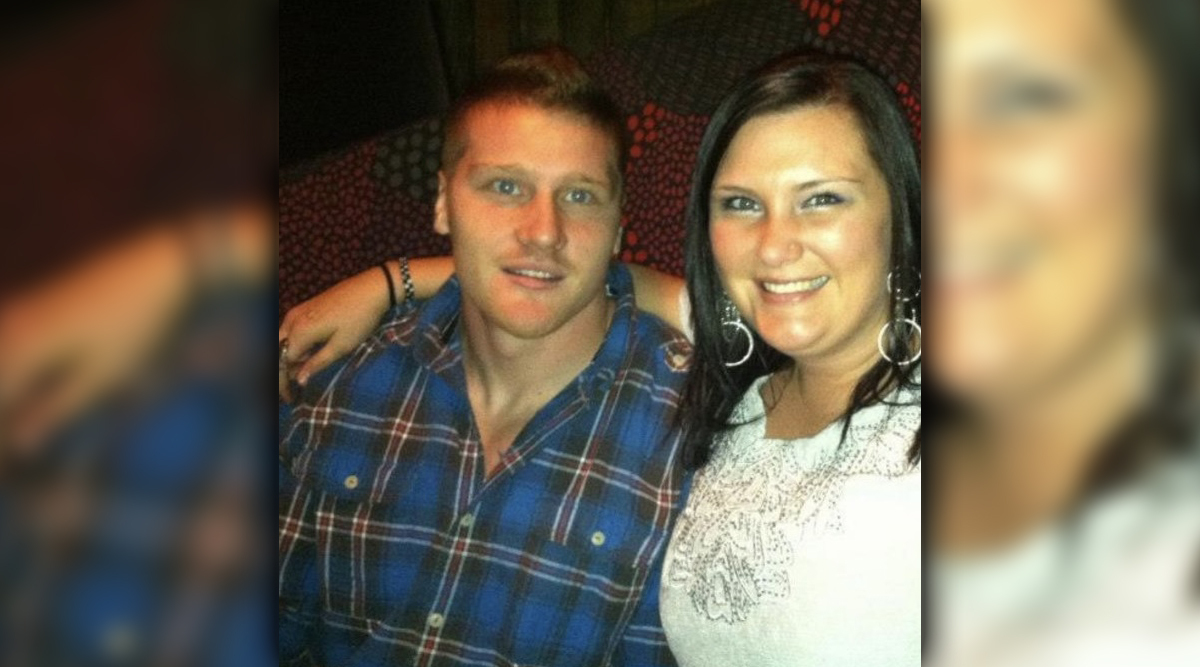Stephen “Steve” Gentili had been healthy most of his life until he was diagnosed with a rare kidney disease. During “Donate Life Month” he shares his story.
By TJ Banes, IU Health Senior Journalist, tfender1@iuhealth.org
Growing up on the South Side of Chicago, Stephen “Steve” Gentili was a year-round athlete. Baseball, basketball and football were his seasonal sports. In high school, he fell in love with football and balanced his training with weightlifting.
On the field he played safety and eventually moved into the spot of linebacker. After high school he moved to California, enrolled in UCLA, and continued playing the sport he loved.
Then, his life took a sharp turn.
“I had a series of incidents. My mom and sister passed away within a year. That was tough. I didn’t realize it then, but the game my sister watched, ended up being my last,” said Gentili. A torn meniscus took him out of the game. Even though he recovered, his heart wasn’t in it when his mom passed of complications from cancer and his sister died in a car accident three weeks later.
At 38, Gentili has spent most of his adult life pursuing powerlifting and has been recognized as a world-class powerlifter. At one point he could squat more than 800 pounds, and bench press 600 pounds.
When his body began to ache and his blood pressure elevated, doctors originally thought it was a symptom of Gentili’s physical workouts.
“They’d say something like, ‘you’re a young, healthy guy. Get some rest,’” said Gentili. “After a while I was so fatigue, I thought I’d lost my passion.” Along with competitive powerlifting, Gentili became a personal trainer at a gym in California. He moved to Indianapolis in 2018. Last November, he opened Indy City Barbell, a 24-hour gym on South College Ave.
At the time he opened the gym, Gentili was also experiencing declining health.
In 2019, he was diagnosed with Focal segmental glomerulosclerosis (FSGS), a disease that causes scar tissues to build up in parts of the kidney that filter waste from the blood. Inherited genes can case a rare form of FSGS.
“My sister has a different type and my cousin was diagnosed after me. Because of me other family members discovered they have it. My grandpa died in the 60s and all we knew was it was related to his kidneys,” said Gentili, who is the youngest of six children.
In July 2019, Gentili ended up at IU Health Methodist Hospital. He spent a week in ICU. He was told then that his kidneys were so compromised that he would need to go on dialysis within a few months.
“After my hospital stay, I made a few adjustments to what I was eating, and rebounded a little. I started going once month for bloodwork and was stable but not great,” said Gentili. “Then COVID hit so I stayed away from the hospital. When I went back, I was going down hill fast. I felt sick and tired.” Within hours of new bloodwork, Gentili received a call from his doctor advising him to go to ER immediately.

After four years on dialysis, Gentili needed a new kidney. His sister, Susanne Gentili, a year older than Steve, was a match. A resident of Greenfield, Wisc., Susanne Gentili went through her donation remotely. Her kidney was shipped to IU Health where Steve received a transplant on Jan. 18, 2024. He was in the surgical care of IU Health’s Dr. William Goggins.
“The IU Health team was great and I had an immediate connection with Dr. Goggins. I liked his approach and his honesty,” said Gentili. “I’ve had eight orthopedic surgeries and the healing was a lot faster. The team at IU Health has been proactive and I’m doing everything they say to keep this kidney healthy.”
